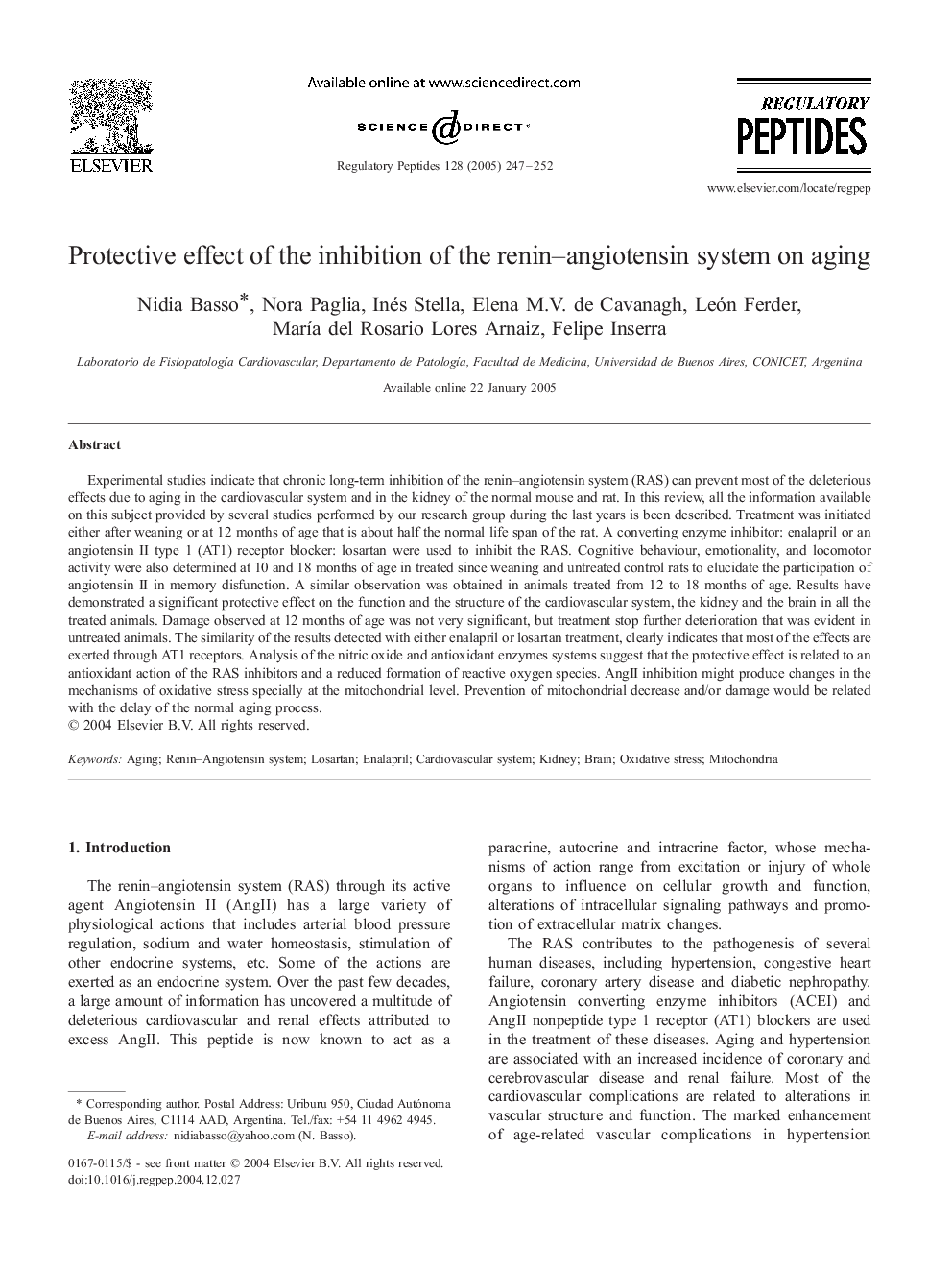| Article ID | Journal | Published Year | Pages | File Type |
|---|---|---|---|---|
| 10845306 | Regulatory Peptides | 2005 | 6 Pages |
Abstract
Experimental studies indicate that chronic long-term inhibition of the renin-angiotensin system (RAS) can prevent most of the deleterious effects due to aging in the cardiovascular system and in the kidney of the normal mouse and rat. In this review, all the information available on this subject provided by several studies performed by our research group during the last years is been described. Treatment was initiated either after weaning or at 12 months of age that is about half the normal life span of the rat. A converting enzyme inhibitor: enalapril or an angiotensin II type 1 (AT1) receptor blocker: losartan were used to inhibit the RAS. Cognitive behaviour, emotionality, and locomotor activity were also determined at 10 and 18 months of age in treated since weaning and untreated control rats to elucidate the participation of angiotensin II in memory disfunction. A similar observation was obtained in animals treated from 12 to 18 months of age. Results have demonstrated a significant protective effect on the function and the structure of the cardiovascular system, the kidney and the brain in all the treated animals. Damage observed at 12 months of age was not very significant, but treatment stop further deterioration that was evident in untreated animals. The similarity of the results detected with either enalapril or losartan treatment, clearly indicates that most of the effects are exerted through AT1 receptors. Analysis of the nitric oxide and antioxidant enzymes systems suggest that the protective effect is related to an antioxidant action of the RAS inhibitors and a reduced formation of reactive oxygen species. AngII inhibition might produce changes in the mechanisms of oxidative stress specially at the mitochondrial level. Prevention of mitochondrial decrease and/or damage would be related with the delay of the normal aging process.
Keywords
Related Topics
Life Sciences
Biochemistry, Genetics and Molecular Biology
Biochemistry
Authors
Nidia Basso, Nora Paglia, Inés Stella, Elena M.V. de Cavanagh, León Ferder, MarÃa del Rosario Lores Arnaiz, Felipe Inserra,
